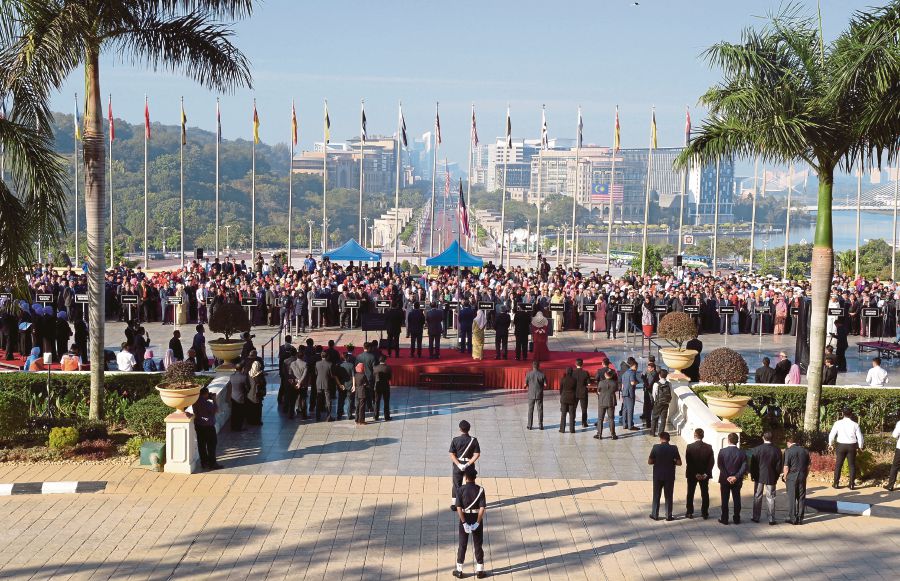Dr M: Those holding public office must name proxies

(NST) – THOSE holding public office will be compelled to name their proxies. They will be expected to do this when they declare their assets, an administrative process that will be made compulsory for ministers, deputy ministers and political secretaries, as is the case with civil servants.
This requirement, Prime Minister Tun Dr Mahathir Mohamad said, would be extended to (Pakatan Harapan) members of parliament.
Dr Mahathir had, in June, said the three groups of appointees would be required to declare their assets to him and that the information would be passed on to relevant agencies.
This included the National Centre for Governance, Integrity and Anti-Corruption (GIACC), which will be the custodian of the information on assets declared by ministers, deputy ministers, political secretaries and top government officials.
The Pakatan Harapan chairman had said that a decision on whether the information would be made public or not had not been finalised.
Dr Mahathir said at a press conference after chairing a Cabinet Committee Meeting on Anti-Corruption that specific forms were being drawn up “so that the members of parliament and ministers know exactly what they have to declare”.
He said the form would include a section listing the proxies that would be named.
Dr Mahathir was asked on the issue of proxies representing those in power, a practice that was a bane to the authorities fighting corruption and abuse of power.
GIACC director-general Tan Sri Abu Kassim, who is former Malaysia Anti-Corruption Commission chief commissioner, was heard telling the prime minister, who was fielding questions: “They (the group of office holders) will have to fill in the asset declaration form who their proxies are”.
Those empowered as frontliners in the fight against corruption and abuse of power told the New Straits Times that putting proxies in an open system was a step in the right direction.
They said although there was no legal provision to criminalise those who failed to declare their assets despite being required to, there would be a formal avenue to act against them “administratively”.
“By allowing for this in the system, if they were found to have concealed the fact that they have proxies serving their interests, the prime minister can act against them,” one of them said.
Soon after his cabinet was formed, Dr Mahathir declared on June 29 that he would sack any member of his administration if they were found to be involved in corruption or misappropriation of government funds.
The NST last month reported that Putrajaya was pushing for specific legal provisions that would minimise the exposure of those holding public office to corruption and abuse of power.
The plan was to lump politicians with civil servants and have them under a proposed law — the Public Officials Misconduct Act.
Sources had said that the plan was to hold civil servants and politicians accountable for bad decisions that result in the loss of government funds.
“The government is drafting a law that will allow punitive action against officials who cause leakages and wastage of government funds,” a source said, adding that under the proposed law, anyone involved in the decision-making process could be prosecuted for their bad judgment.

